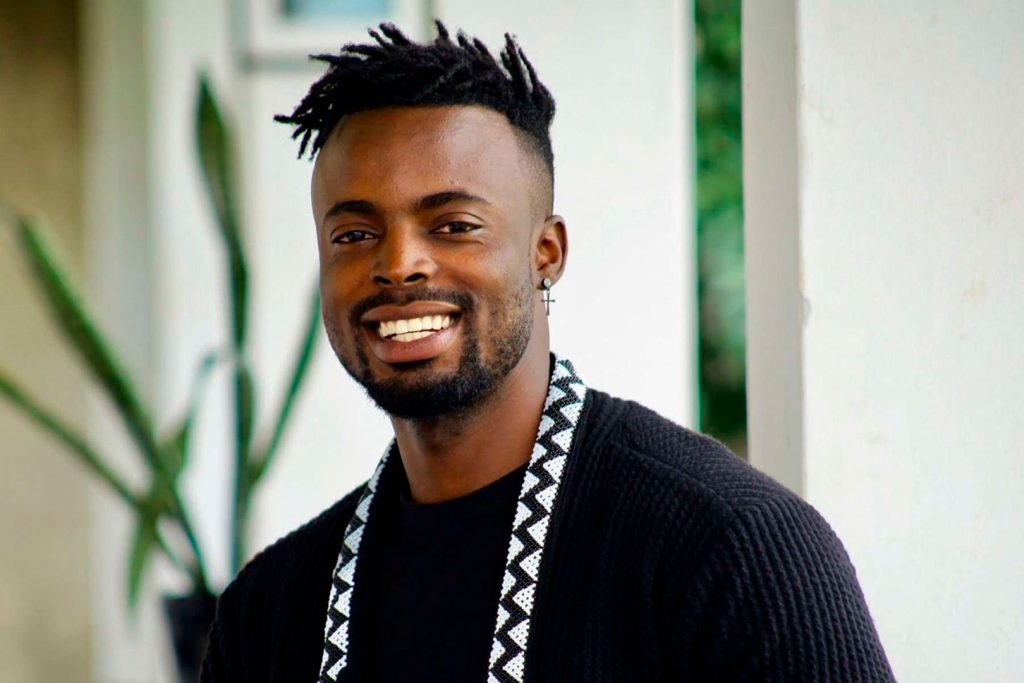Facebook Twitter (X) Instagram Somali Magazine - People's Magazine
Moses Turahirwa, the renowned Rwandan fashion designer who once styled President Paul Kagame and his family, has found himself at the center of a legal storm after admitting in court that he sourced cannabis from Kenya. The emotional revelation came during his trial in Kigali, where he faces charges of drug possession and use, a serious offense under Rwanda’s strict narcotics laws.
Turahirwa, founder of the luxury fashion brand Moshions, broke down in tears as he recounted his struggles, claiming that he had been unfairly targeted by authorities. His arrest followed forensic tests conducted by the Rwanda Investigations Bureau (RIB), which confirmed the presence of drugs in his system. “It is true that Moses Turahirwa was arrested and is being investigated for drug use, as confirmed by the results of tests conducted and analyzed by experts,” RIB spokesperson Thierry Murangira stated.
The case has sparked widespread debate in Rwanda, where drug-related offenses carry severe penalties. Turahirwa’s admission that he obtained cannabis from Kenya has also raised questions about cross-border drug trafficking and the accessibility of narcotics in the region. Kenya, where marijuana remains illegal under the 1994 Narcotic Drugs and Psychotropic Substances Act, has seen growing calls for legalization, with advocates arguing that regulation could curb illicit trade and improve safety standards.
Turahirwa’s legal troubles are not new. In 2023, he was arrested on similar drug-related charges and spent months in jail before being released on provisional bail. His latest arrest comes amid heightened scrutiny of public figures in Rwanda, with authorities cracking down on perceived moral and legal transgressions.

The designer’s fall from grace has shocked many in Rwanda’s fashion industry, where he was once celebrated for elevating traditional Rwandan attire to global prominence. Moshions, the brand he founded in 2014, became a symbol of modern African luxury, attracting high-profile clients and international recognition. Turahirwa’s government-sponsored fashion education in Italy further cemented his reputation as a leading creative force.
However, his recent troubles have overshadowed his achievements, with critics questioning whether his legal battles are part of a broader campaign against dissenting voices in Rwanda. Turahirwa had previously accused the government of unjustly imprisoning his father, a retired pastor, in connection with the 1994 Genocide against the Tutsi. His social media posts on the matter were met with silence from authorities, but his subsequent arrests have fueled speculation about political motivations behind his prosecution.
As Turahirwa awaits the court’s verdict, his case has reignited discussions about Rwanda’s drug laws and their impact on personal freedoms. While some argue that strict enforcement is necessary to maintain order, others believe that the country’s approach to drug offenses disproportionately targets certain individuals.
The trial’s outcome could have far-reaching implications, not only for Turahirwa but for Rwanda’s creative industry and its stance on drug-related offenses. Whether he will receive a lenient sentence or face the full force of the law remains to be seen, but his emotional courtroom confession has already left a lasting mark on public discourse.
